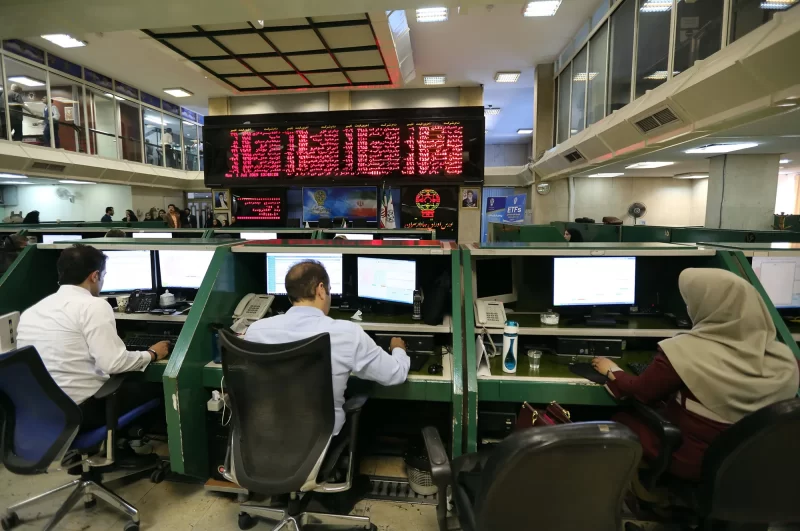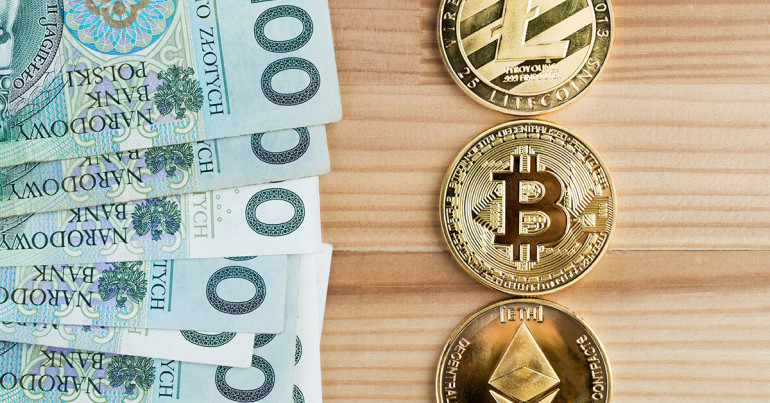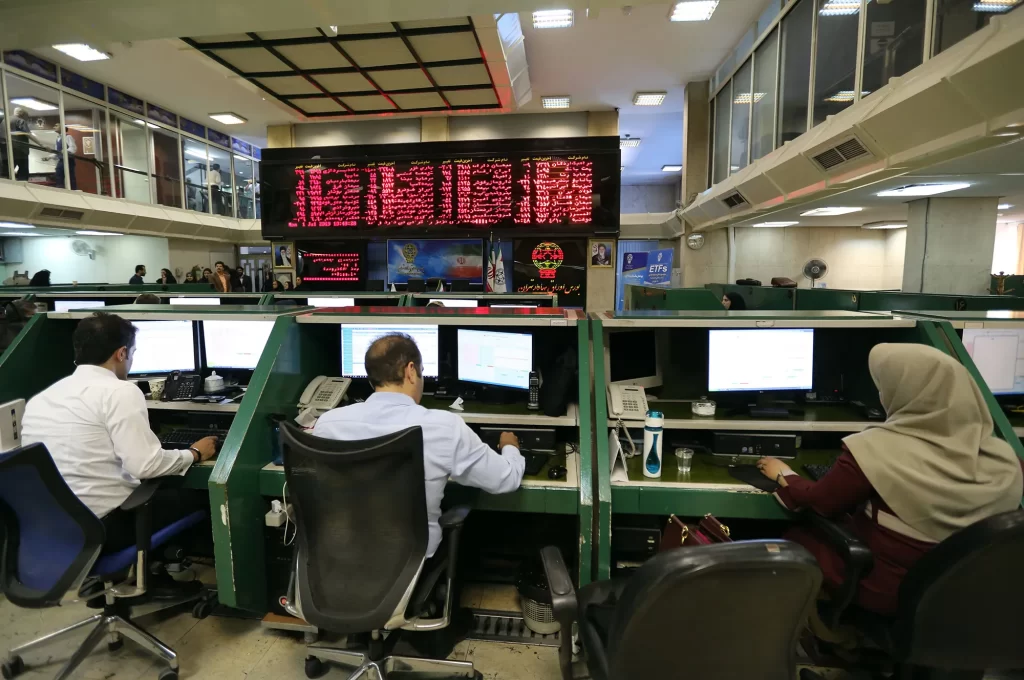Forex, short for foreign exchange, refers to the global marketplace for trading national currencies against one another. Because of the worldwide reach of trade, commerce, and finance, Forex markets tend to be the largest and most liquid asset markets in the world. If you're considering stepping into this vast financial arena, it's crucial to arm yourself with the necessary knowledge to navigate it successfully. This guide will walk you through the fundamental aspects of Forex trading, from understanding its basic mechanics to formulating your own trading strategy.
Understanding Forex
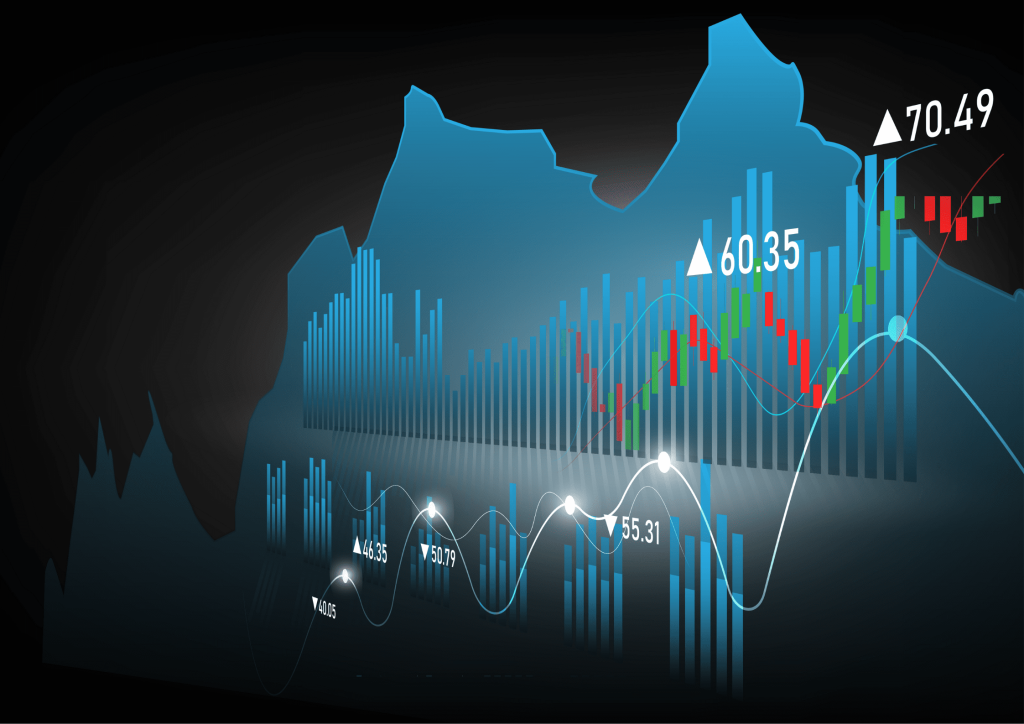
Forex trading is a financial activity that involves the simultaneous buying and selling of currencies on the foreign exchange market. When you participate in Forex trading, you are essentially speculating whether the value of one currency will increase or decrease compared to another. This market operates 24 hours a day, five days a week, facilitating the exchange of trillions of dollars daily, making it the world's largest and most liquid financial market.
The concept of Forex trading is rooted in the international nature of trade, commerce, and finance. With globalization, companies, governments, and individuals often need to exchange currencies for various purposes, creating a constant demand for currency exchange.
Let's take a simple example: when a U.S. company purchases goods from Europe, it may pay in Euros, even though its income is in U.S. dollars. Hence, the company will need to exchange its U.S. dollars for Euros to complete the transaction. This is just one of countless transactions happening globally that require currency exchange.
In the world of Forex, these transactions occur in currency pairs, where you are buying one currency and selling another simultaneously. The first currency in the pair is the ‘base' currency, and the second is the ‘quote' currency. For example, in the EUR/USD pair, EUR is the base currency, and USD is the quote currency. The exchange rate represents how much of the quote currency is needed to buy one unit of the base currency.
Exchange rates fluctuate constantly due to various factors. Economic indicators such as GDP growth rates, inflation rates, and employment rates significantly influence a country's currency strength. Central banks' interest rates also play a vital role; higher interest rates often make a currency more attractive as investors can get a higher return. Additionally, geopolitical events and market sentiment can cause rapid shifts in currency values.
The Basics of Forex Trading
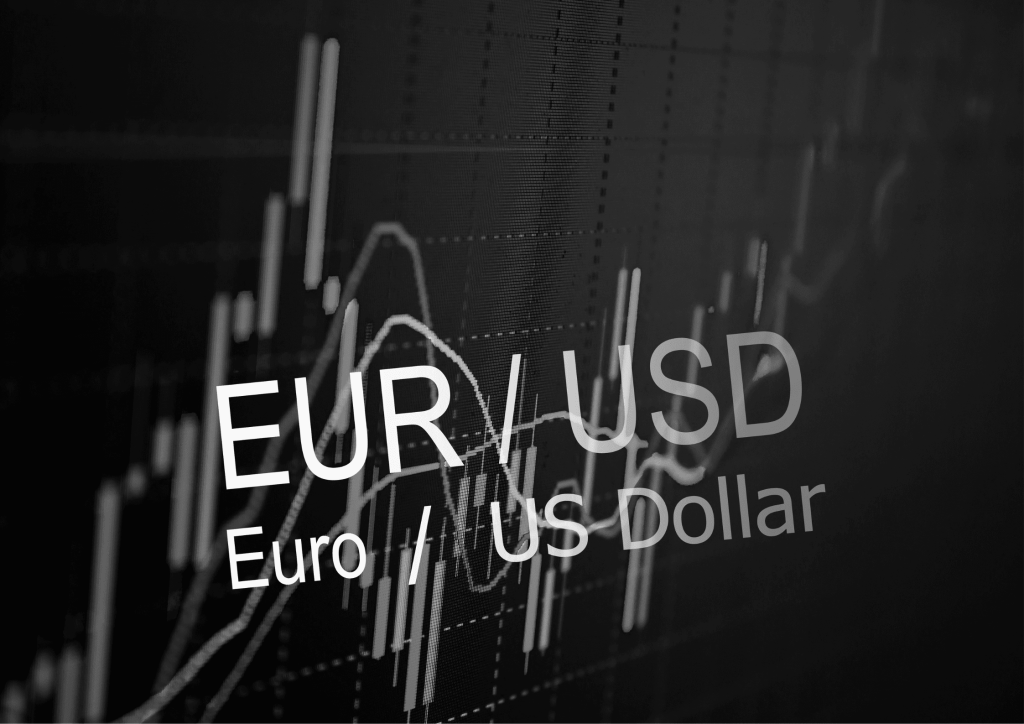
When beginning your journey in Forex trading, there are several key concepts that you should understand:
Currency Pairs
In Forex trading, currencies are traded in pairs because your trade involves the simultaneous buying of one currency and selling of another. There are three types of currency pairs: majors, minors, and exotics.
- Major pairs: These are the most traded currency pairs in the world, typically involving the U.S. Dollar on one side. They include EUR/USD, USD/JPY, GBP/USD, USD/CHF, AUD/USD, USD/CAD, and NZD/USD. These pairs are highly liquid and typically have the tightest spreads.
- Minor pairs: These pairs do not include the U.S. Dollar but involve the major currencies like the Euro, Yen, Pound Sterling, etc. Examples include EUR/GBP, GBP/JPY, and EUR/AUD. These pairs are less liquid than the majors and have wider spreads.
- Exotic pairs: These are currency pairs that include a major currency and the currency of a developing economy, such as South Africa, Mexico, or Turkey. Examples include USD/TRY, EUR/SEK, and USD/ZAR. Exotic pairs are less liquid and have even wider spreads.
Pips
A pip is an acronym for “percentage in point” and represents the smallest unit of price movement in a currency pair in the Forex market. For most currency pairs, a pip is equivalent to a 0.0001 change in the exchange rate, or one one-hundredth of a percent. For pairs involving the Japanese Yen, a pip is equivalent to a 0.01 change in the exchange rate.
Leverage
Leverage is a tool that allows traders to control large positions with a relatively small amount of money. It's expressed as a ratio. For instance, if your broker provides you with 100:1 leverage, this means you can control a $100,000 position with just $1,000. However, while leverage can magnify your profits, it can also amplify your losses. As such, leverage should be used with caution, particularly by beginner traders.
Margin
Margin is the amount of capital required in your account to open a trade using leverage. It's like a good faith deposit to maintain open positions. It's not a fee or a transaction cost, but a portion of your account equity set aside and allocated as a margin deposit.
Lots
In Forex trading, currencies are traded in specific amounts called lots. One standard lot is equivalent to 100,000 units of the base currency. There are also mini-lots (10,000 units), micro-lots (1,000 units), and even nano-lots (100 units), which are often used by beginner traders who are still learning.
Forex Trading Platforms
In the age of technology, Forex trading is predominantly conducted online through trading platforms. These platforms are software interfaces provided by brokers, allowing traders to place trades, manage their accounts, analyze market trends, and implement their trading strategies. Here are some features and tools commonly found in Forex trading platforms:
- Real-time Price Feeds: These allow traders to see the current prices of currency pairs and other financial instruments in real time.
- Charting Tools: These tools allow traders to visualize price movements and identify patterns. The most common chart types are line charts, bar charts, and candlestick charts.
- Technical Indicators: Indicators help traders analyze price trends, identify potential entry and exit points, and predict future price movements. Examples include moving averages, Bollinger bands, stochastic oscillators, and relative strength index (RSI).
- News Feeds: Because Forex prices are highly influenced by economic and political news, most platforms provide live news feeds. These feeds allow traders to stay up-to-date with the latest market news and events.
- Automated Trading and Backtesting Tools: Some platforms offer features for automated trading, where trades are executed automatically based on a predefined strategy. They may also allow backtesting, where a strategy is tested on historical market data to assess its effectiveness.
Popular Forex trading platforms include MetaTrader 4 (MT4), MetaTrader 5 (MT5), and cTrader. Each platform offers different features and tools, so it's important to choose one that fits your trading style and needs.
Many brokers also provide demo accounts on their platforms. A demo account lets you trade with virtual money, allowing you to practice your strategies and get familiar with the platform's features without risking real money.
Developing a Forex Trading Strategy

Successful Forex trading isn't about making random decisions; it requires a thoughtful and well-structured trading strategy. Your trading strategy is essentially your guide to the Forex market – it should define your trading goals, risk tolerance, and trading methodology. Here's what a basic Forex trading strategy might include:
- Risk Management: This is perhaps the most crucial aspect of your trading strategy. It defines how much risk you're willing to take on each trade and helps protect your trading capital. The amount of risk taken on each trade is often expressed as a percentage of your trading capital. Many experienced traders suggest not risking more than 1-2% on a single trade. This means that if you have $10,000 in your trading account, you should not risk losing more than $100-$200 on any single trade.
- Entry and Exit Points: Your strategy should clearly define when to enter and exit a trade. These decisions can be based on technical analysis (using price charts and indicators), fundamental analysis (using economic data and news events), or a combination of both. Defining your entry and exit points in advance helps take emotion out of your trading decisions, reducing the chance of impulse trades or holding onto losing positions for too long.
- Trading Goals: Having clear, realistic short-term and long-term financial goals can help guide your trading strategy and keep you focused. Are you trading Forex to supplement your income, or are you aiming to make it your full-time job? Your goals will affect your trading style, risk tolerance, and the time commitment you can dedicate to trading.
- Trading Schedule: Forex market operates 24 hours a day, five days a week. But that doesn't mean you need to trade all the time. Depending on your trading style and the currency pairs you focus on, you might choose to trade during specific Forex market sessions (like the London session, the New York session, or the Tokyo session) when your chosen currency pairs might have higher volatility.
- Continuous Learning and Improvement: Forex markets are dynamic and constantly changing. It's essential that your trading strategy includes continuous learning and regular reviews of your trades to identify areas for improvement. This could involve reading up on economic news, learning about new technical analysis tools, or reviewing your past trades to identify successful moves or recurring mistakes.
Also Read: 10 Traits on How to be a Successful Trader
Technical and Fundamental Analysis
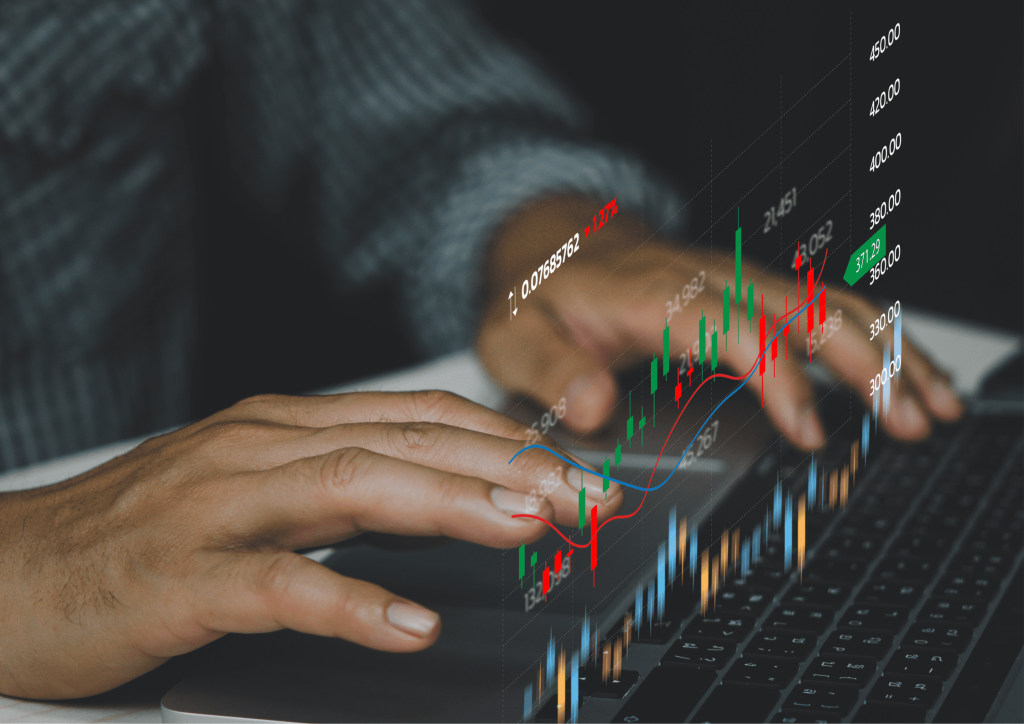
In Forex trading, there are two primary types of analysis traders use to make trading decisions: technical analysis and fundamental analysis. These represent different methodologies, each with its strengths and weaknesses. Often, traders will utilize a combination of both to get a more holistic view of the market.
Technical Analysis
Technical analysis is a method of predicting future price movements based on historical price data and market statistics. It primarily involves the study of price charts and technical indicators. The underlying principle is that all current market information is reflected in the price, and hence, the study of price action is all that is required.
Here are some key elements of technical analysis:
- Price Charts: Traders use different types of charts to visualize price movements over a given period. The most popular types are line charts, bar charts, and candlestick charts.
- Trends: In technical analysis, ‘the trend is your friend' is a popular saying. Traders identify market trends (uptrends, downtrends, or sideways trends) and aim to make trades that align with these trends.
- Support and Resistance: These are specific price levels or ranges where the price tends to change direction. Support is a price level where buying generally takes place, halting the price from falling further, while resistance is a level where selling typically occurs, stopping the price from rising more.
- Technical Indicators: These are mathematical calculations based on a currency pair's price and/or volume. Examples include Moving Averages, Relative Strength Index (RSI), Bollinger Bands, Stochastic Oscillator, etc. Each indicator serves a unique purpose and is used for specific situations.
Fundamental Analysis
Fundamental analysis involves evaluating a country's economic indicators and geopolitical events to predict the future direction of a currency's value. If a country's current or future economic outlook is good, its currency might strengthen compared to other countries. In contrast, if a country's economic performance is expected to decline, its currency might weaken.
Here are some key elements of fundamental analysis:
- Economic Indicators: These include data such as GDP, unemployment rates, consumer price index (CPI), retail sales, industrial production, etc. These data releases can significantly impact currency values.
- Interest Rates: Currency values are heavily influenced by interest rates set by a country's central bank. Higher interest rates often lead to a stronger currency as they attract foreign investors looking for higher returns.
- Political Events and News: Significant political events, such as elections, changes in government policies, geopolitical tensions, and even wars, can cause dramatic shifts in currency values.
- Market Sentiment: The overall mood or feeling that market participants have can drive price action. It's often measured using various surveys, and technical indicators, and can also be gauged by price action itself.
Also Read: Forex Trading and Market Sentiment: A Comprehensive Guide for Traders
How to Start Trading
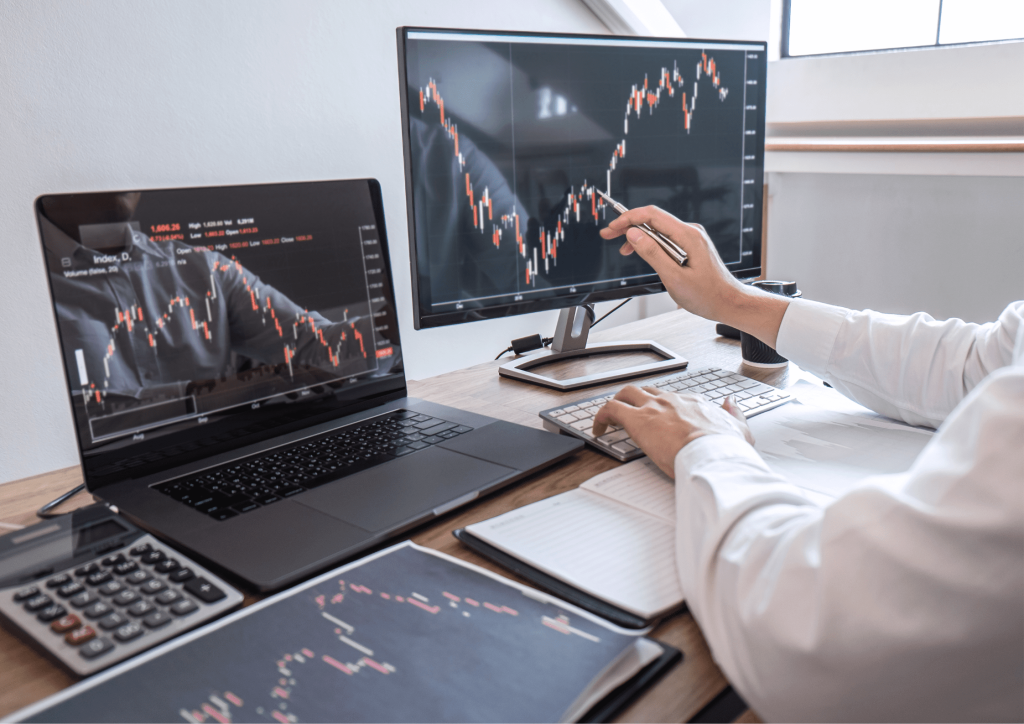
Starting to trade in the Forex market might seem daunting, but by following a series of steps, you can begin this journey in a structured manner. Here's a simple step-by-step guide:
- Education: Begin by educating yourself about Forex, trading basics, market analysis, and risk management. There are numerous free resources available online, including articles, e-books, webinars, and video tutorials.
- Choose a Broker: Your broker will provide you with the trading platform where you execute your trades. Look for a regulated broker that offers competitive spreads, good customer service, and quality educational resources. Always remember to read the broker's terms and conditions before opening an account.
- Trading Platform: Download and familiarize yourself with the trading platform provided by your broker. Get to know its features and functionalities by opening a demo account. This will allow you to practice trading without risking real money.
- Develop a Trading Plan: Create a comprehensive trading plan that outlines your trading goals, risk tolerance, methodology, and trading schedule. This plan will guide your trading activities and help you stay focused and disciplined.
- Risk Management: Understand and apply risk management techniques. Always use protective stop-loss orders, limit leverage, and never risk more than a small percentage of your trading capital on a single trade.
- Start Trading: Begin by trading small amounts and gradually increase your exposure as you gain more experience and confidence. Be patient and disciplined, stick to your trading plan, and always analyze your trading performance and make necessary adjustments.
Conclusion
Forex trading can be both rewarding and challenging. With proper knowledge, careful planning, and disciplined execution, it's possible to navigate the Forex market successfully. Remember, trading involves risk, and not all traders profit from it. Therefore, you should only trade with money you can afford to lose. Keep learning, stay patient, and develop a sound trading strategy to increase your chances of success in the Forex market.
FAQs
How much money do I need to start trading Forex?
The amount of money you need to start trading Forex can vary widely based on your financial situation, your trading strategy, and the broker you choose. Some brokers offer accounts with a minimum deposit as low as $10, while others may require larger initial deposits. However, as a beginner, it's generally a good idea to start with an amount that, while affordable, is sufficient to absorb a few losses and still continue trading. This could be anywhere from a few hundred to a few thousand dollars. Remember, you can also practice with a demo account before risking real money.
Can I trade Forex on my own, or do I need a broker?
While technically it's possible to trade Forex on your own by directly accessing the interbank market, in practice, this is not feasible for individual traders due to the high transaction costs and the large amount of capital required. Therefore, individual Forex traders typically trade through a broker or a market maker who offers a trading platform, leverage, and significantly lower transaction costs. It's crucial to choose a reputable broker that is regulated by a recognized authority to ensure the safety of your funds.
How much time do I need to dedicate to Forex trading daily?
The time commitment for Forex trading varies widely among traders. Some might trade full-time and spend several hours per day analyzing charts and executing trades, while others might trade part-time, dedicating just an hour or two each day or even less. Factors that can influence the amount of time you spend trading include your trading style (day trading requires more time than swing trading or position trading), the time frame you trade (trading on smaller time frames requires more time), and your individual circumstances and goals. It's essential to create a trading schedule that fits with your daily routine and to remember that spending more time trading does not necessarily equate to higher profits.




